Congrats PM Mahathir & Zakir Supporters – India To Slap Extra 5% Import Tax On Malaysian Refined Palm Oil.
The duty on crude palm oil was lowered to 40% from 44%, while a tax on the refined variety was cut to 50% from 54% after Indonesia and Malaysia, the top two palm oil producers in the Southeast Asia, sought a reduction in the import tax. Prior to that, India had raised the import tax on crude palm oil to 44% from 30% and hiked the tax on refined palm oil to 54% from 40% in March 2018.
So, even after India slashed the taxes on palm oil products by 4% respectively in January this year (2019), it was still 10% higher compared to the rate in March 2018. Yet, when those small duties of 4% were cut, Malaysian exports to India jumped extraordinary by 727% – indicating the sensitivity and importance of tariffs on the commodities for Malaysia.
Malaysian exports of refined palm oil to India, the world’s biggest importer of edible oils, jumped 727% in the first half of 2019 to 1.57 million tonnes. Mohd Bakke Salleh, chairman of the MPOB (Malaysian Palm Oil Board), attributed the increase to sudden cuts in Indian import taxes on crude and refined palm oil in January, about 7 months after the downfall of Najib regime.
You don’t need a rocket scientist to tell what will happen to the Malaysian palm oil business when India slaps back the import duties. Yes, the question is no longer “if” but rather “when” the Government of India will re-impose the taxes on Malaysian palm oil. According to a notification dated August 26 sighted, the India’s Commerce Ministry has recommended an increase in import duty.
The Indian ministry has sought an increase in duty by 5% on refined palm oil imports from Malaysia to 50% from 45%. As published earlier last month, despite the reduction of import tax on refined palm oil import to 50% in January, the effective tax from Malaysia was only 45%. In short, Malaysia enjoys a special 5% less import tax due to the special relationship between both countries.
So, while rival Indonesia is subjected to 50% tax on refined palm oil, Malaysia’s tariff is only 45%, thanks to a Comprehensive Economic Cooperation Agreement (CECA) signed between both India and Malaysia. Although Indonesia exports more palm oil to India, it is losing out to Malaysia because its neighbouring Malaysia enjoys lower tariffs.
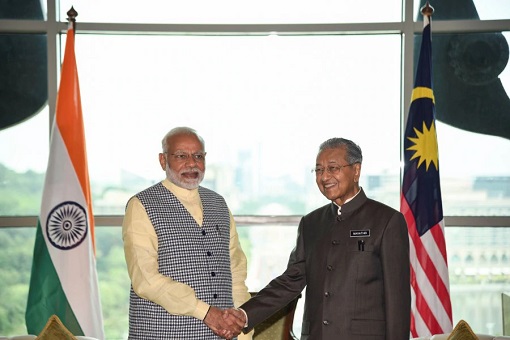
The special relationship between Malaysia and India has made Indonesians demand for the same fair treatment. Indonesia had asked India to cut its tariff on refined palm oil to 45%, matching the levy faced by rival producer Malaysia. In return, Jakarta was willing to open up its market access for raw sugar from India (Indonesia now imported raw sugar from Thailand and Australia).

The special relationship between Malaysia and India has made Indonesians demand for the same fair treatment. Indonesia had asked India to cut its tariff on refined palm oil to 45%, matching the levy faced by rival producer Malaysia. In return, Jakarta was willing to open up its market access for raw sugar from India (Indonesia now imported raw sugar from Thailand and Australia).
Indonesian President Joko “Jokowi” Widodo was quite smart though. While he urged his counterpart Malaysian Prime Minister Mahathir Mohamad to jointly address and fight discrimination against palm oil by European Union (EU) countries, Indonesia was at the same time lobbying the Indian government to abolish the unfair preferential treatment accorded to Malaysia.
Like Malaysia, palm oil is a sensitive and hot potato in Indonesia. More than 20 million Indonesians, especially in Sumatra and Kalimantan, rely on palm oil for their livelihood. Indonesian exports last year rose 8% to 34.5 million tonnes – valued at US$20.3 billion – with India (24.5%), the European Union (16.1%) and China (12.01%) being the three leading markets.
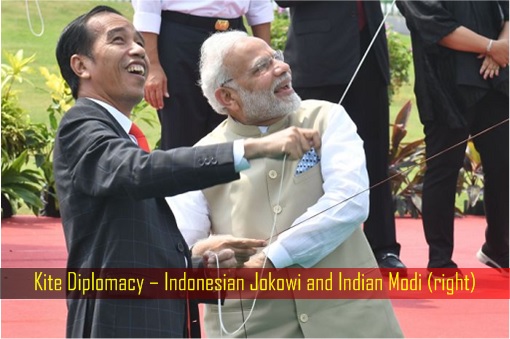
India is so important to Indonesia that during a meeting of the G20 Summit in Osaka, Japan (29 June 2019), President Jokowi particularly requested Prime Minister Narendra Modi to pay special attention to the adjustment of the new import tariffs for Indonesia’s palm oil export. India could ignore the Indonesian request out of respect for Malaysia, but it didn’t.

India is so important to Indonesia that during a meeting of the G20 Summit in Osaka, Japan (29 June 2019), President Jokowi particularly requested Prime Minister Narendra Modi to pay special attention to the adjustment of the new import tariffs for Indonesia’s palm oil export. India could ignore the Indonesian request out of respect for Malaysia, but it didn’t.
Malaysia and India enjoy a special relationship largely because ethnic Indians in Malaysia mostly are descendants of those who migrated from India during the British colonisation of Malaya. Numbering more than 2-million (7%), Malaysian Hindus constituted the third largest ethnic group in the country, and forms the 5th largest community of “Overseas Indians” in the world.
But it seems the genius Mahathir has taken for granted the importance of that 5% special tariff enjoyed by Malaysia but not Indonesia. The prime minister prefers to protect and harbour Zakir Naik, the controversial Indian Islamic preacher wanted by the Indian government for spreading hate speech, laundering money, and funding terrorism.


When India hiked the tax on refined palm oil to 54% in March 2018, it was so damaging that the Najib administration had to appeal to India. The duty hike led to a slowdown in palm oil imports and for the first time in the history, the share of palm oils in the overall vegetable oils dropped to 40% from around 58%-70%. But when the tax was cut by only 4%, the export jumped 727%.
Now that India is going to slap an extra 5% tax, can you imagine what will happen to the Malaysian palm oil industry? It’s worth to note that former PM Najib lost in the May 2018 general election partly because Felda settlers suffered tremendously due to the low price of palm oil, which dropped from above RM3,000 / ton in early 2017 to below RM2,500 / ton in 2018.
The defiant Zakir ignorantly said the Malaysian Chinese aren’t born in the country so they, as the “old guests”, must go back to China first before he (the “new guest”) can be asked to leave. The dangerous hate preacher had also falsely claimed that Malaysian Hindus were more loyal to Prime Minister Narendra Modi than Prime Minister Mahathir.
Yet, majority of Malay Muslims in Malaysia are charmed and hooked to Zakir Naik, despite the amazing fact that the local community doesn’t understand the preacher’s Indian accent English sermons. Politicised by opposition parties like the PAS Islamist party and UMNO Malay nationalist party, they prefer Zakir over millions of fellow ethnics Chinese and Hindus citizens.
But what really frustrated India wasn’t Malaysia’s refusal to extradite their citizen. If Malaysia wanted so badly to destroy itself with Zakir, as has proven with the preacher’s venture into racial politics lately, India would gladly watch with popcorn and Coke. It was the Malaysian PM Mahathir’s insult about India’s democracy and judiciary system that has rubbed the 1.32-billion population nation the wrong way.
Despite boastfully said his government runs by rule of law, the 94-year-old Mahathir had arrogantly said he would not deport the radical and extreme preacher even if India asked for it. Later, even after the premier admitted that Zakir has crossed the red line, venturing into racial politics, he defiantly said the preacher could not be repatriated because his life could be at risk in India.
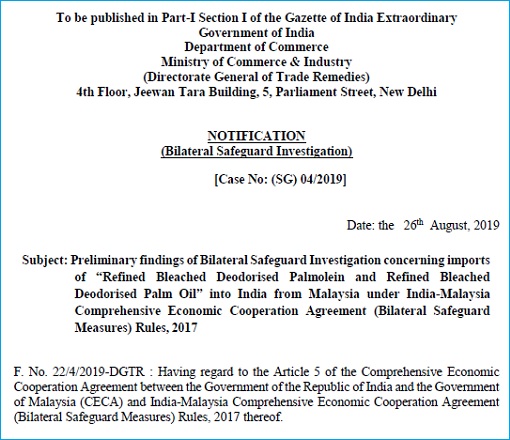
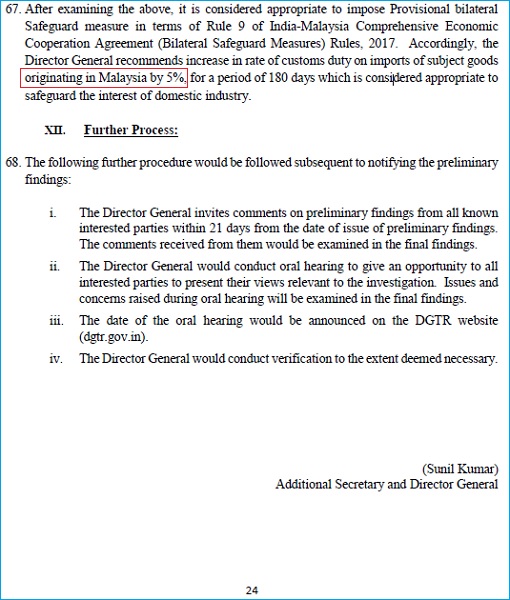
It was as good as telling all and sundry that Narendra Modi is a brutal leader and his government is as ruthless and murderous as North Korean Kim Jong-Un. Malaysia and India have an extradition treaty signed in January 2010. It’s fine if Mahathir and Zakir supporters refuse to honour the rule of law, but choose to play religion games and insult the Hindus in the process.
 |
Mahathir loves this agitator-foreigner far more than Malaysians |
Yet, majority of Malay Muslims in Malaysia are charmed and hooked to Zakir Naik, despite the amazing fact that the local community doesn’t understand the preacher’s Indian accent English sermons. Politicised by opposition parties like the PAS Islamist party and UMNO Malay nationalist party, they prefer Zakir over millions of fellow ethnics Chinese and Hindus citizens.
But what really frustrated India wasn’t Malaysia’s refusal to extradite their citizen. If Malaysia wanted so badly to destroy itself with Zakir, as has proven with the preacher’s venture into racial politics lately, India would gladly watch with popcorn and Coke. It was the Malaysian PM Mahathir’s insult about India’s democracy and judiciary system that has rubbed the 1.32-billion population nation the wrong way.
Despite boastfully said his government runs by rule of law, the 94-year-old Mahathir had arrogantly said he would not deport the radical and extreme preacher even if India asked for it. Later, even after the premier admitted that Zakir has crossed the red line, venturing into racial politics, he defiantly said the preacher could not be repatriated because his life could be at risk in India.


It was as good as telling all and sundry that Narendra Modi is a brutal leader and his government is as ruthless and murderous as North Korean Kim Jong-Un. Malaysia and India have an extradition treaty signed in January 2010. It’s fine if Mahathir and Zakir supporters refuse to honour the rule of law, but choose to play religion games and insult the Hindus in the process.
It would make things easier for India. There’re many ways to skin a cat. Instead of lowering the import tax on Indonesian palm oil so that they could enjoy the same tax rate as Malaysia, as requested by President Jokowi, India now decides to increase the tariff on Malaysian palm oil instead to achieve the same result. It’s an understatement to say Mahathir wasn’t concerned about the impact.
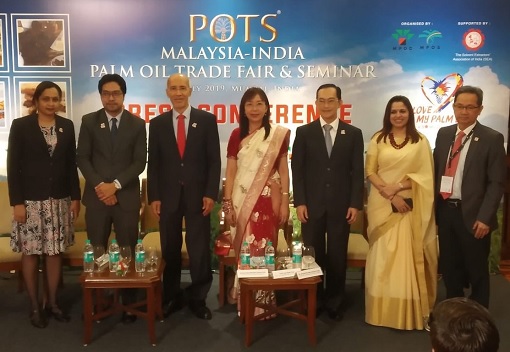 |
Sweetie, you would have looked great in a cheongsum too |
Yes, Mahathir administration had specially flown Primary Industries Minister Teresa Kok to India on a 5-day economic and investment mission to India last month to strengthen trade relations. But based on the India’s Commerce Ministry document dated August 26 (2 days ago), not even wearing her “saree”could manage to impress and charm India to forget about Zakir’s fiasco.
Teresa Kok is now rushing and pushing other ministries to correct the trade imbalance with India so that more palm oil can enter the India market at a lower import duty. That’s a polite way of saying Malaysian palm oil is screwed because the extra 5% import tax is coming. In other words, India is saying that keeping Zakir and insulting the country comes with a price.
 |
for all its goodness, what with the Kerala Idiot insulting Indian laws and offending the Indians, poor Teresa might as well drink Keralite racun |
It’ll absolutely exciting and fun to see the economic and financial impact on Felda, Sime Darby Jomalina, Tabung Haji Plantation, Sarawak Oil Palm and other major palm oil players in Malaysia. If India wanted to, it can boycott Malaysian palm oil products entirely. Even without Indonesian palm oil, they can import soy oil or rapeseed oil from Brazil, Argentina or other countries.
 |
King Minus he effed/effs up every eff-ing thing he eff-ing touched/touches on - the blardy Eff-er |



all problems solved when zakir naik left malaysia soon otherwise malaysian economy fall too
ReplyDeletemalaysia can experiment if they ready to send zakir naik to india no hike of tax and no issue of business of pam oil with malaysia
ReplyDelete